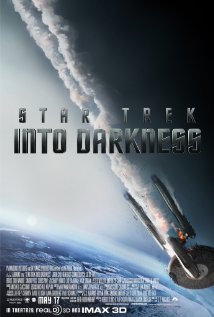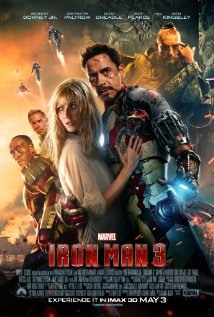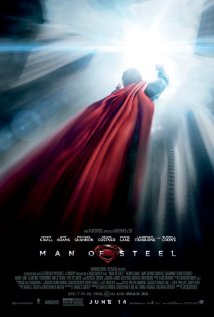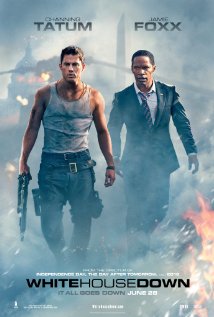Terrorist plots in movies including 'Iron Man 3' and 'Star Trek Into Darkness' go where Hollywood once feared to tread to give real-life relevance to fantasy.
by John Horn, Los Angeles Times
Think you can escape the world's troubles by heading to the multiplex this summer?
Think again.
Terrorist schemes have a starring role in the season's action movies, triggering an assortment of mayhem — collapsing skyscrapers, spaceships flying into densely populated cities and bombers run amok.




"Star Trek Into Darkness" features two attacks on crowded offices. The apparent villain in "Iron Man 3" bears a preternatural resemblance to Osama bin Laden. The survivors of collapsing high-rises in "Man of Steel" look just like New Yorkers covered in the gray ashes of the fallen World Trade Center towers. Critics have pointed out several terror analogies in the zombie drama "World War Z."
Coming out Friday, "White House Down" follows a violent Washington takeover in which the U.S. Capitol is blown up and the head of Homeland Security taken hostage by domestic fanatics. And in Aug. 28's conspiracy thriller "Closed Circuit," a bomb placed by a Muslim cell is detonated in a British market, prompting memorials similar to those after 9/11.
Twelve years after the Sept. 11 attacks made such plots commercially unthinkable, Hollywood is no longer shying away from story lines involving terrorists bent on harming civilians and destroying landmarks. Filmmakers say the trend reflects their attempt to give fantasy films some real-world relevance. And now, with the terror attacks more than a decade in the past, they say they no longer have to worry about alienating audiences.
"The way I process things is that I write about them, and you write about the times you live in," said James Vanderbilt, the screenwriter of "White House Down," which stars Channing Tatum as an aspiring Secret Service officer trying to rescue his daughter and the president when the White House is taken over by domestic terrorists.
"I was always fascinated with the idea of how you could take over the country — who would be able to do that," said Vanderbilt, who previously developed (but was unable to make) a movie based on Richard Clarke's memoir "Against All Enemies: Inside America's War on Terror."
The crop of movies represents a 180-degree turn from the immediate wake of the Sept. 11 attacks, when the film business put a freeze on movies that had the vaguest connection to terrorism and even shelved projects that had negative depictions of emergency personnel.
Some movies considered too topical — like Arnold Schwarzenegger's "Collateral Damage," about a terrorist bombing of a Los Angeles skyscraper, and Tim Allen's comedy "Big Trouble," which included a nuclear bomb on an airplane — were released months later than planned, and advertising images, including a "Spider-Man" image using the World Trade Center, were pulled.
Just as Hollywood didn't start examining the Vietnam War in depth until several years after the fall of Saigon — with movies such as "Platoon" and "Coming Home" — it's taken an equal amount of time for Hollywood to feel comfortable addressing terrorism. The industry's self-imposed suppression didn't vanish overnight. Rather, the change was gradual, starting several years ago with films about Middle East conflict.
"People have very short memories, and what was verboten 10 years ago no longer is today," said Michael Taylor, a veteran movie producer and the chair of film and television production at USC's School of Cinematic Arts. "Hollywood will always use what's in the zeitgeist to entertain people, and terror is in the zeitgeist."
Indeed, audiences seem entranced by the terrorist ties.
"Iron Man 3" is the year's biggest blockbuster, with a worldwide gross in excess of $1.2 billion. The latest "Star Trek" sequel has sold more than $400 million in global tickets, and the new Superman movie, "Man of Steel" opened June 14 and has surpassed $400 million worldwide.
"Man of Steel" has perhaps the starkest visual ties to the 9/11 attacks, with its images of countless metropolitan buildings tumbling down, coating the people and streets below in ghostly residue.
Director Zack Snyder said he was trying to evoke one of America's darkest days in a mythological rather than literal sense, using Superman as something like a therapist.
"They're helping us understand the weird psychological and big horrible events that happen all the time. These guys deal with them in a dream-like way that makes it OK," the filmmaker said. "A modern problem — a city getting destroyed — a superhero can help you understand that."
In the latest "Star Trek" sequel, the action may unfold in the future but its terror elements — including a spaceship taking out a major city — are intended to remind audiences of the present.



